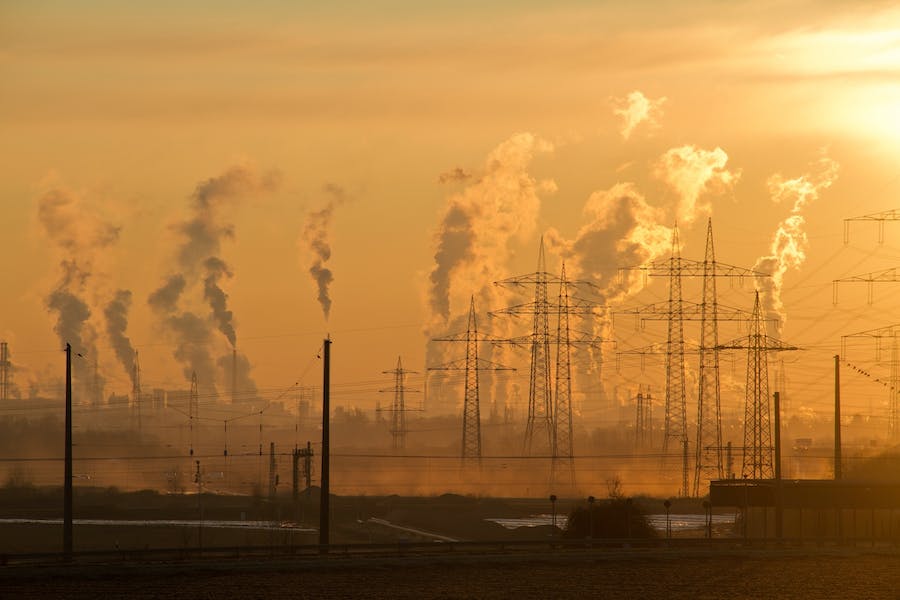Why Environmental Engineering Is Important?
In our rapidly evolving world, the significance of environmental engineering cannot be overstated. At Cypress, we firmly believe that understanding the importance of this field is a shared responsibility. So, why environmental engineering is important?
Picture our planet as a dynamic ecosystem, where humans, nature, and technology intersect. Our environmental engineers are the unsung heroes in this complex dance, ensuring that we leave a positive and sustainable imprint.
With their expertise, we tackle environmental challenges head-on. Our environmental engineers help safeguard our water resources against pollution and mitigate the impact of climate change through innovative solutions. Environmental engineers are the architects of a greener and healthier world.
As we delve into the heart of environmental engineering, we’ll explore its essential role in shaping the world we live in. Keep reading to discover its importance!
Environmental Challenges
Environmental challenges are pressing issues that require our attention and action. In this section, we’ll provide an overview of the major environmental concerns that our world faces. Understanding these challenges is the first step toward finding solutions.
Overview of major environmental issues
- Climate change – The Earth’s climate is rapidly changing due to increased greenhouse gas emissions. Environmental engineers play a vital role in mitigating these effects by developing clean energy solutions, improving energy efficiency, and assessing climate risks.
- Air pollution – Poor air quality is a threat to public health and the environment. Our environmental engineers work to reduce emissions from industries, transportation, and other sources. They aim to improve air quality and minimize its impact.
- Water pollution – Clean water is essential for life. Environmental engineers focus on preserving and restoring water quality in lakes, rivers, and oceans. They design wastewater treatment plants and ensure safe drinking water supplies.
- Biodiversity loss – Ecosystems are declining due to habitat destruction and over-exploitation of natural resources. Environmental engineers engage in conservation efforts to protect biodiversity and maintain ecological balance.
Impacts of environmental degradation
- Health consequences – Environmental degradation directly affects human health. Contaminated air and water, along with climate-related health issues, pose significant risks. Environmental engineers strive to mitigate these health consequences.
- Economic costs – Environmental issues can have substantial economic impacts. Disasters like wildfires and hurricanes, exacerbated by environmental problems, result in billions of dollars in damage. Environmental engineering helps reduce these costs through disaster preparedness and resilience planning.
- Social disparities – Environmental problems often disproportionately affect marginalized communities. Environmental engineers focus on addressing these disparities, aiming for equitable solutions.
Role of Environmental Engineering
At Cypress, environmental engineering plays a multifaceted role in addressing some of the world’s most pressing challenges. This section will outline its various responsibilities and contributions to a sustainable future.
1. Pollution prevention and control
Our environmental engineers are at the forefront of pollution prevention and control efforts. They develop technologies and strategies to minimize pollution from industries, transportation, and other sources. Their work leads to cleaner air, safer water, and healthier environments for all.
2. Sustainable resource management
Sustainable resource management is integral to environmental engineering. Our professionals in this field focus on using natural resources efficiently while minimizing waste and environmental harm. Their efforts encompass energy, water, and materials, ultimately aiming for a sustainable, circular economy.
3. Environmental impact assessment and mitigation
Environmental engineers assess the environmental impact of projects, policies, and practices. Their work ensures that developments, from urban infrastructure to industrial operations, consider and mitigate their effects on the environment. This assessment process is crucial in maintaining ecological balance.
The management of water, air, and waste is a core responsibility of environmental engineers.
4. Importance of clean water and air
Access to clean water and air is a fundamental human right. Environmental engineers design and maintain systems for water treatment and distribution, ensuring safe drinking water for communities. They also develop air quality improvement measures to combat air pollution, safeguarding public health.
5. Waste management and recycling
Waste management is critical for public health and environmental protection. Environmental engineers design sustainable waste management systems, including recycling and disposal. These systems reduce the environmental footprint of waste and promote a circular economy.
As climate change looms as one of the most significant global challenges, environmental engineering is actively involved in addressing it.
6. Environmental engineering’s role in addressing climate change
Environmental engineers are working to combat climate change by developing technologies and strategies to reduce greenhouse gas emissions. They’re involved in the clean energy sector, helping to harness renewable energy sources like solar and wind, reducing our dependence on fossil fuels.
7. Renewable energy integration and sustainability practices
The integration of renewable energy sources into existing systems is a pivotal role of environmental engineers. They’re at the forefront of the renewable energy revolution, helping design sustainable energy solutions for a greener, more sustainable future.
Environmental engineering plays a vital role in the development of eco-friendly technologies and practices.
Environmental engineering serves as a cornerstone of sustainability and environmental protection. It does this through several means. These include pollution control, resource management, environmental impact assessment, and climate change mitigation. This field embodies the commitment to a cleaner, healthier, and more sustainable world.
Protecting Natural Ecosystems
Environmental engineers serve as guardians of our natural ecosystems. Their roles are pivotal in ensuring that human progress does not come at the cost of irreplaceable natural habitats. Let’s delve into the essential components of their work in conserving ecosystems and preserving biodiversity.
Environmental engineers’ role in conserving ecosystems
Environmental engineers collaborate with ecologists, biologists, and other experts to design and implement projects that have minimal adverse impacts on ecosystems. These projects could include several things.
They could include construction and development in ecologically sensitive areas and transportation infrastructure that minimizes habitat disruption. They could also include wastewater treatment systems. These systems would prevent contamination of natural water bodies.
Sustainable practices for biodiversity
Biodiversity is a cornerstone of a healthy planet. It supports ecosystem stability and resilience, and our environmental engineers recognize the importance of preserving it. They work on developing and promoting sustainable practices that protect and promote biodiversity.
This includes habitat preservation and restoration projects, the design of wildlife corridors, and the application of sustainable land development practices. These initiatives not only protect existing ecosystems but also help restore those that have been damaged due to previous human activities.
Building Resilience to Climate Change
In an era marked by the looming challenges of climate change, environmental engineering plays a vital role in helping communities adapt to these changes. They address the significance of reducing greenhouse gas emissions and design strategies for building resilience. Our environmental engineers play a pivotal role in securing a sustainable future.
Adapting to climate change
Environmental engineers actively work on projects and initiatives that help communities adapt to the effects of climate change. They design resilient infrastructure capable of withstanding extreme weather events and rising sea levels.
Flood control systems, for example, are engineered to protect communities from the increasing threat of floods brought about by climate change. Sustainable urban development planning is another aspect of their work, ensuring that cities are designed with resilience in mind.
Reducing greenhouse gas emissions
A primary driver of climate change is the emission of greenhouse gases, primarily carbon dioxide and methane. Environmental engineers are deeply involved in developing technologies and strategies to reduce emissions.
They work on clean energy systems, such as solar and wind power, and energy-efficient practices in industries and buildings.
By mitigating greenhouse gas emissions, environmental engineers contribute significantly to slowing the progression of climate change and lessening its adverse impacts on the environment and society.
Environmental Engineering and Public Health
Environmental engineering and public health are intrinsically intertwined, with the former playing a vital role in promoting and safeguarding the latter. Environmental engineers are at the forefront of ensuring that our surroundings are not just sustainable but also conducive to human well-being.
The environmental engineering and public health connection
At its core, environmental engineering revolves around creating and maintaining clean and safe environments. The close connection between environmental engineering and public health is evident in several ways:
- Clean air and water – Environmental engineers work diligently to ensure that the air we breathe and the water we drink are free from contaminants and pollutants. Their efforts are central to reducing the potential health risks associated with poor air and water quality.
- Proper waste disposal – Effective waste management and disposal are critical to preventing health issues. Environmental engineers design waste management systems that minimize risks to public health, ensuring that hazardous materials are handled and disposed of safely.
- Pollution control – Environmental engineers are actively involved in controlling and mitigating various forms of pollution. Their work aims to reduce human exposure to harmful substances, limiting the potential health impacts of pollution.
Reducing disease risks
The significance of a clean and healthy environment to public health cannot be overstated. Environmental engineers are frontline defenders in the battle to reduce disease risks:
- Safe drinking water – Ensuring access to clean and safe drinking water is one of the core responsibilities of environmental engineers. They design and manage water treatment systems that remove contaminants and pathogens, thus minimizing waterborne diseases.
- Air quality – Environmental engineers work on projects and regulations to control and improve air quality. By reducing air pollution, they help lower the incidence of respiratory illnesses and other health issues linked to poor air quality.
- Proper waste management – Environmental engineers contribute to the safe disposal of waste and hazardous materials, preventing the spread of diseases and limiting the potential risks to public health.
Conclusion
In the vast realm of engineering, the role of environmental engineers stands as a beacon of hope. It advocates for both ecological preservation and human well-being. Their contributions extend beyond the technical and the tangible. They are stewards of our planet, working tirelessly to ensure a sustainable future.
Environmental engineers harmonize the often competing interests of development and conservation. Their essential work takes center stage in the battle against pollution, the fight for climate change mitigation, and the responsible management of precious resources.
We hope that this article has helped you understand why environmental engineering is important. Environmental engineers’ unwavering commitment illuminates a path to human progress intricately linked to our planet’s well-being.













